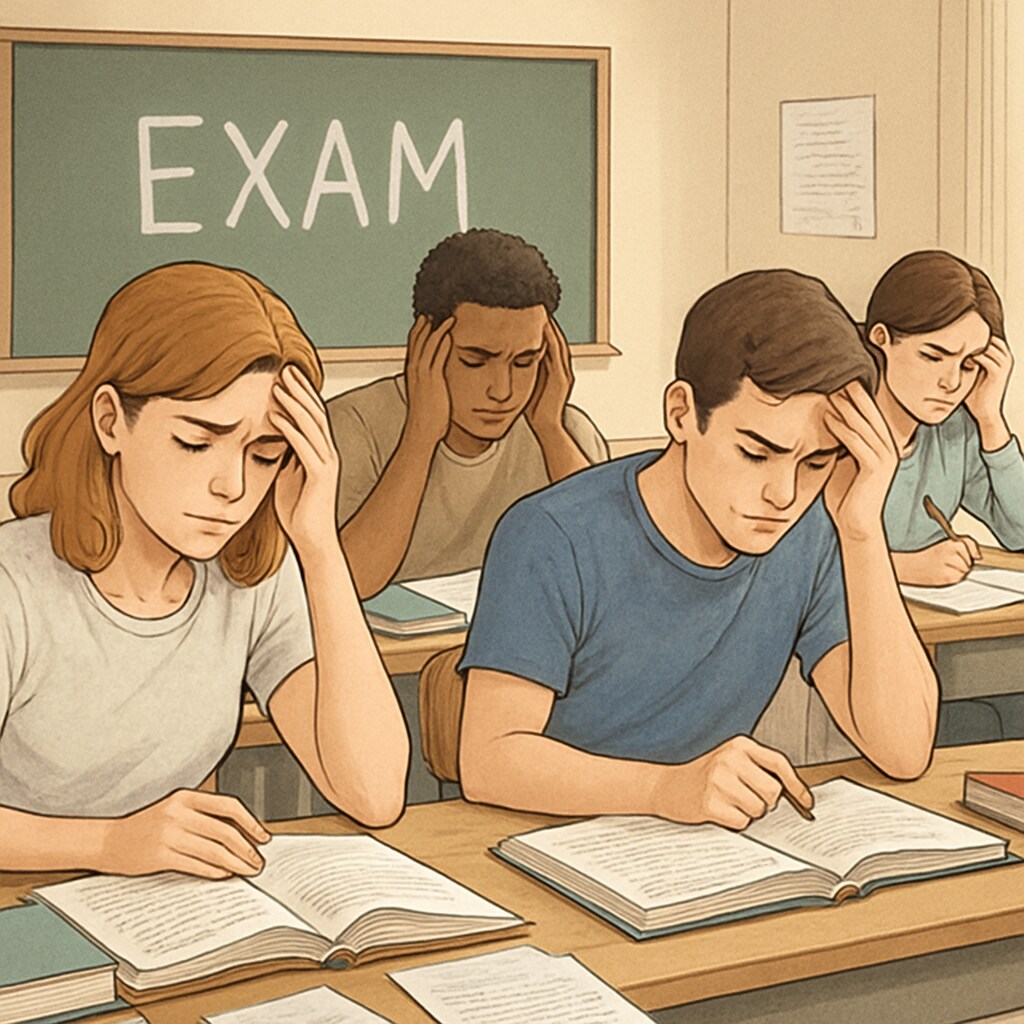For many students in the UK, the pressure to achieve high GCSE results can lead to significant academic anxiety, casting doubt on their future prospects. This stress, often magnified by societal expectations and comparisons, can have a profound impact on mental health. However, it’s crucial to understand that while exams are important, they are not the sole determinant of your future success. Diverse academic and career pathways exist, offering opportunities to thrive regardless of your performance in a single set of exams.
Understanding Exam Anxiety and Its Root Causes
Academic anxiety related to GCSE exams often stems from fear of failure, societal pressure, and uncertainty about future prospects. Students may feel overwhelmed due to high expectations from parents, teachers, and peers. Furthermore, the emphasis on grades as a measure of intelligence or worth can exacerbate feelings of inadequacy. According to research published by Britannica, anxiety disorders can negatively affect focus, memory, and performance, creating a vicious cycle of stress and underachievement.

To combat these challenges, it’s essential to shift the narrative surrounding academic success. Acknowledge that exams are just one moment in a lifelong journey of learning and growth, not the ultimate measure of your capabilities.
Why GCSE Results Don’t Define Your Future
While GCSE results are important for certain academic and career paths, they are not the final word on your future prospects. Many successful individuals have taken unconventional routes, proving that determination and adaptability often outweigh grades. For example, vocational training, apprenticeships, and community college programs offer practical alternatives to traditional academic pathways. The UK government’s guide to apprenticeships highlights how these programs provide valuable skills and experience, paving the way for fulfilling careers.

Moreover, personal attributes such as resilience, creativity, and interpersonal skills frequently play a more significant role in long-term career success than exam scores. Employers today increasingly value soft skills and real-world experience, making academic results just one factor among many.
Practical Strategies to Manage Academic Anxiety
To help students navigate the challenges posed by GCSE exams, consider implementing the following strategies:
- Set realistic goals: Focus on doing your best rather than aiming for perfection. Break down study sessions into manageable chunks to avoid burnout.
- Practice mindfulness: Meditation, deep breathing exercises, or yoga can help reduce stress and improve focus.
- Seek support: Talk to trusted friends, family members, or school counselors about your concerns. Sharing your feelings can alleviate mental strain.
- Maintain perspective: Remember that exams are just one chapter in your life story. Success often comes from persistence and adaptability, not just grades.
By adopting these techniques, students can reduce anxiety, approach exams with greater confidence, and foster a healthier outlook on academic challenges.
Looking Beyond Exams: Building a Growth Mindset
Developing a growth mindset—a belief that intelligence and abilities can be developed through effort—can transform how students perceive academic setbacks. Instead of viewing lower-than-expected GCSE results as a failure, treat them as an opportunity to learn and improve. This mindset encourages resilience and a positive attitude, both of which are essential for long-term success.
In addition, engaging in extracurricular activities, volunteering, or pursuing hobbies can help students discover their passions and build valuable skills outside of the classroom. Such experiences not only bolster self-esteem but also demonstrate to future employers or educational institutions that you are a well-rounded individual.
In conclusion: GCSE results matter, but they are not the sole determinant of your future. By managing academic anxiety and embracing diverse pathways, you can unlock your potential and achieve success in ways that go far beyond exam grades.


